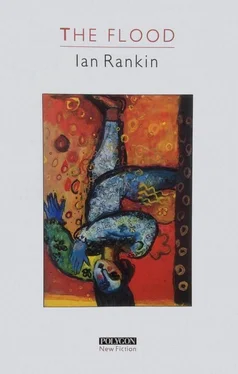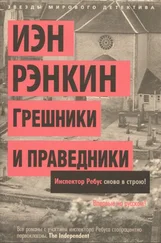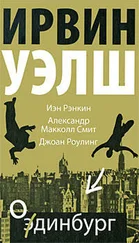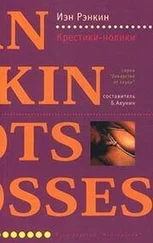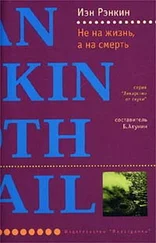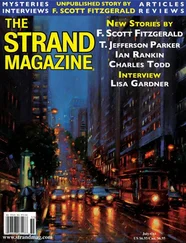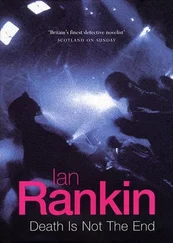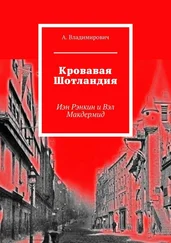The old man looked at him, and his gaze forced Darroch to lower his eyes into his own lap. There was a silence so powerful that for the first time Darroch could hear the grandfather clock ticking slowly in the hallway. The old minister sighed. ‘That’s a long and complex story, Iain. Should I tell it to you?’
‘She is a member of my congregation, Alec.’
‘Then shouldn’t she be the one to tell you?’
‘But would she tell me? Would you rather I got the story from some biased source?’ Darroch had won the point. Alec Walker shrugged his crouched body and settled deep into his armchair. ‘Very well,’ he said, reaching for the bottle. ‘Another refill is needed, I believe. I hope you are a good listener, Iain. This is not the most pleasant of stories.’
The dissolution was evident in and around Robbie’s eyes. Sandy could hardly bear to look into those watery, red rimmed pools. It was like gazing into a forbidden bedroom at the terminal patient within. He found a spot on Robbie’s shirt collar where the material was fraying and concentrated his eyes there instead.
Robbie was wondering why Sandy had not been up to the mansion recently. The boy shrugged his shoulders and grunted. Robbie nodded his head but still looked at Sandy for an answer. Sandy shrugged again.
‘The pressure of life,’ he said finally.
‘A fucking lot you would know about that, Alexander. A fucking lot.’
Sandy could not get things straight in his mind. This slouching youth was supposed to be evil, the ogre in the fairy story. The princess was being forced to slave for him. Yet Robbie still wore the guise of an innocent. He looked like his sister’s keeper, yes, but not her pimp. Sandy was bursting to ask him outright about Rian’s accusations. He blushed.
‘What pressures of life have you got?’ continued Robbie.
‘Fuck off, Robbie. Stop talking about it.’ This was man’s talk; Rian was not present. Swearing was common speech among the men in the town. Some were known to communicate through swear-words alone. There were few words that Sandy did not know. He had been reading American crime novels for several years. Even serious literature in America used bad language. He was sure he knew words that no one else in Carsden knew. In the coming term, his last useless term at school, he was determined to use bad language in his essays for Andy Wallace. He was determined to register a protest about everything.
‘You started it,’ Robbie was saying.
‘That’s hardly fair.’ Sandy managed to sound scoffing. Robbie shrugged his shoulders. He gazed at his companion, his eyes milky but keen.
‘Not long now,’ he said, to keep the conversation turning. In his life, Robbie talked to very few people, and fewer listened. He enjoyed Sandy’s company more than he could say, and regarded him as a friend. He could not quite understand the change that had taken place in Sandy recently, but he knew that it had something to do with Rian. He knew that as well as he knew himself. Sandy seemed determined not to talk about it for the moment, but something in the boy’s attitude told Robbie that he would talk about it soon enough, and that the conversation then would not be happy.
They walked quickly, but were held back by the steepness of The Brae. They were walking to Craigie Hill, just beyond Cardell, behind which a quarry was in operation. Craigie Hill was sheer at one side and sloping at the other. The tinkers’ encampment was at the base of the sheer side. Sandy expected that one day a bulldozer would push the whole hillside down on top of the gypsies and their small modern caravans.
He had met Robbie near the school; a chance meeting. Previously, he had been wary of being seen with him, but the long summer had instilled a sense of carelessness in him, or rather recklessness, and so he walked with Robbie along the town’s outskirts. Robbie was going to visit his Aunt Kitty. From her, Sandy hoped he would learn some truth.
Robbie coughed into his cupped hands, than spat noisily into the road.
‘Do you feel it getting cooler these days?’ he asked Sandy. The boy shook his head.
‘Well,’ said Sandy, ‘the summer’s not over yet. It’s a long time since there was any rain. I can’t say that I’ve noticed it cold. Are you feeling all right?’
‘Fine, fine. Just a wee summer chill, that’s all.’ Sandy examined Robbie while he coughed again.
‘Are you eating enough, Robbie?’ he asked, embarrassed by the sympathy which was evident in his question.
‘Oh aye, we eat well enough. We can’t really eat hot food though, unless it’s from the chip shop. My Aunt Kitty gives me a square meal whenever I visit. Rian’s a decent enough cook, but there isn’t the — what-do-you-call-thems? the facilities — in the mansion.’
‘Aye.’ Sandy nodded his head. He had never known hunger or malnutrition. Hunger to him was the half-hour before lunch, soon appeased. Malnutrition was when his mother forgot the bacon for Sunday breakfast. He was like a fattened chick in a warm nest. Robbie, though, was a scavenger-hunter. He had to make kills if he was to eat, and had to make double the kills in order to feed his young sister. Was that the truth? Sandy could not see truth anywhere. He could see nothing but appearances. Things might or might not be what they seemed. He had written a poem about this problem, based upon a record by a rock group. He hoped to buy the group’s new album with the money he would be given on his birthday. His sixteenth birthday was only two weeks away, a week after school restarted. Sixteen. Some things became legal. He could marry. That seemed absurd. He still could not go into pubs. He had promised himself that on his birthday he would go to Edinburgh by himself on the train. He would spend his money there. It would be an adventure. He had been there with his mother on childhood sightseeing trips, but this would be quite different. He would be sixteen. It seemed the perfect age. He did not think that he would like to be any older than sixteen, so long as he were still served in pubs.
Finally, at the top of the hill, they came to the encampment — four caravans and a couple of cars set on a patch of derelict ground in the shadow of the sheer rock face. Sandy knew the spot well. He could see it from the playing fields of his school. He knew that the locals had been trying to evict the gypsies ever since they had arrived there some ten months before. He did not know why they had not succeeded, but he knew that the bad feeling towards these people had shifted the balance of intolerance away from his mother, who might well be a witch in the eyes of the town but was still local born and bred and of decent parents. Sandy felt a pang of sadness. His mother’s life had been one of peripheral contact, of balancing on a slender edge between acceptance and outright rejection, never knowing when the scales might perilously tip. It was horrible. She had no real friends. It was worse than having enemies. He felt his own resentment towards Andy Wallace lifting. It flew into the fine wind that curled around the field. It was scooped up over Craigie Hill itself and deposited in the growling quarry. The odds, Sandy knew, were against Andy Wallace as surely as they were against his mother. He prayed silently, to a God he was slowly recognising, that they might endure.
‘That’s my Aunt Kitty,’ Robbie said. He was pointing a long arm towards a small, solid woman who emerged from one of the caravans and went behind it. Robbie shouted towards her, into the wind.
Her head appeared round the caravan. She waved, then the head disappeared again. She looked a bit like a rag-doll to Sandy. Her arm seemed a bag of stockings. When she came from behind the caravan, tugging at her patterned dress, Sandy saw that one sleeve of the dress was folded back and, presumably, tied behind her. The arm she had raised in welcome was her only arm. She chuckled now, displaying some black and crooked teeth. Her hair was tight with curlers and pins.
Читать дальше
